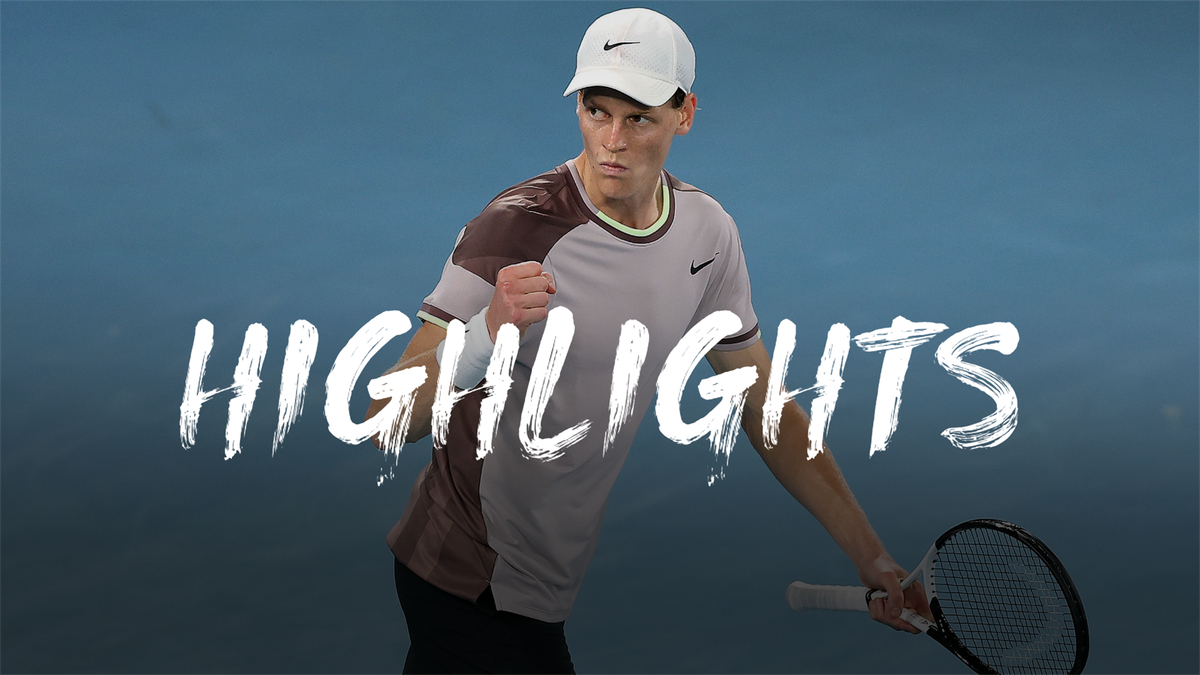‘Incredible’ Jannik Sinner most-improved young player since Novak Djokovic – Mats Wilander
Jannik Sinner is the most-improved young player since Novak Djokovic, according to Eurosport expert Mats Wilander, but he thinks Carlos Alcaraz is the player to beat at the French Open.
The Italian has enjoyed a stunning 2024 season so far, clinching his first Grand Slam title at the Australian Open in January before following that up with victories in Rotterdam and Miami.
And Wilander has been impressed by how quickly the 22-year-old’s game has developed this season.
“He’s improved a lot in the last year, but in the last three months, I think the tactical part of his tennis has improved to the point where he’s not taking any risks anymore,” Wilander told Eurosport.
“He plays fast. He’s trying to hit winners most of the time, but he’s just playing within himself. I think that any surface is going to be his best surface.
“I think it doesn’t depend on grass, hard courts, or even clay courts. I think when he feels good and he’s confident, he knows his game is going to stand up to any player on tour, even if that’s their best surface.
‘A different player’ – Sinner feels his Australian Open win has taken his game to a new level
“It’s an incredible improvement, an improvement that I don’t think I’ve seen in a young player since the ‘Big 3,’ when Novak Djokovic went from being a normal player to understanding: ‘I am better than these guys. If I play close to my best, I can just play my game.’
“That’s the improvement Jannik Sinner has made.”
The clay court season kicks off in Monte Carlo next week, where Sinner will look to build towards a title tilt at Roland Garros.
Sinner reached the quarter-finals at the French Open on his debut appearance in 2020 but hasn’t made it that far since, losing in the second round to Daniel Altmaier last year.
And Wilander believes two-time major winner Alcaraz, who lost to eventual champion Djokovic in the semi-finals during his career-best run in Paris last year, remains a likelier winner than Sinner.
“I don’t think Jannik’s going to walk into Roland-Garros as the favourite necessarily, unless he puts together three or four great weeks on clay in the clay season beforehand,” said the Swede.
“When it comes to him on clay, he’s going to be compared to Novak Djokovic so many times in his tennis career. He plays more aggressively than Novak most of the time, but the defensive part of his game is very similar. That defence on a clay court doesn’t always work.
“When you’re not willing to step away from the baseline, there’s going to be times when the court is either too slippery or his opponent is playing too well, and so he’s not going to be the favourite at the French Open.
“If I was coaching Jannik Sinner, I’m hoping to see him continue his hard court tennis throughout the first few weeks of the clay court season.

Australian Open final highlights: Sinner stuns Medvedev in comeback to win first Grand Slam
“Keeping in mind, he’s very comfortable on clay being Italian, but I don’t think that he is able to win the French Open if he starts playing a little bit more passive, if he starts not controlling the point, because no matter how good he is at defending, defending with an open stance on the backhand on a clay court one metre behind the baseline is not going to be good enough against certain players on certain days.
“I think Carlos Alcaraz will come into the French Open as a heavy, heavy favourite for many more years than Jannik Sinner.
“But that doesn’t mean that Sinner, over five sets, won’t win the French Open as many times as Alcaraz, because three out of five sets is a massive advantage for Sinner, being so level-headed the whole time.”
Sinner’s triumph at the Australian Open propelled him into the elite and made the tennis world sit up and take notice as he fulfilled his potential in style.
The Italian defeated three top-five players – Andrey Rublev, Djokovic and Daniil Medvedev – to win his first Slam, coming from two sets down in the final to beat the latter.
And Wilander says not to underestimate how important that achievement could be for the rest of his career.
“The biggest difference after the Australian Open is confidence. And I think confidence is sometimes misunderstood,” said Wilander, himself a seven-time major winner.
“I think great players understand that having confidence doesn’t mean suddenly hitting shots that they don’t normally hit.
“Confidence to a great player means that they feel safe playing within themselves: ‘This is how good I am, and I can bring this game Monday through Sunday, 8am till midnight. I am going to play the same level. I’m not going to panic whatever the score is.’
“I think that’s where you see the difference. I would say that that turn didn’t come after beating Novak Djokovic.
“It literally came in beginning in that third set when he turned the match around against Daniil Medvedev and realised: ‘Hold on, because he played a little bit slower in the last three sets in the Australian Open final than he did in the first two sets, now I actually have more time to control the rally.’ “
Read the full article Here


